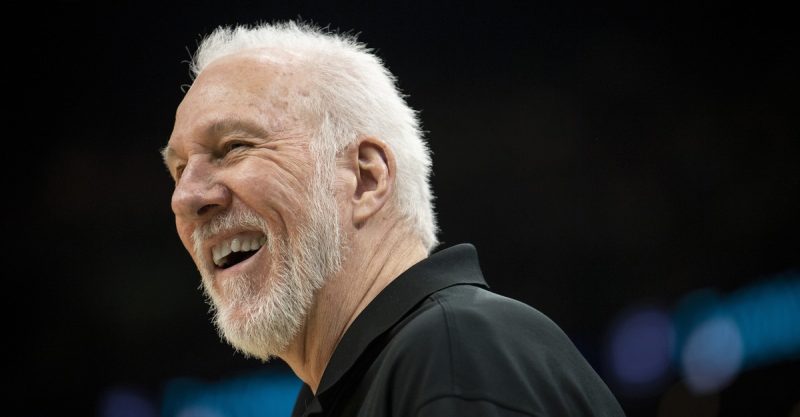
Last Halloween, after the kids were tucked in, I settled down to watch the San Antonio Spurs. The team was a promising mix of veterans and rising stars, including the highly anticipated Victor Wembanyama. With Gregg Popovich at the helm, a playoff run felt within reach. That night, the Spurs triumphed, and Wembanyama delivered an incredible performance. Little did I know, it would be one of Popovich’s final games as head coach.
Weeks later, news broke of Popovich’s mild stroke. His absence from the sidelines became prolonged, and eventually, the announcement came: after nearly 29 seasons, ‘Pop’ was stepping down as head coach, transitioning to the role of President of Basketball Operations. While we’d all anticipated this moment eventually – the departures of Tim Duncan, Manu Ginobili, and Tony Parker had prepared us somewhat – the reality was still heartbreaking. The man who had led the Spurs for so long, the maestro conducting their symphony of success, was moving on.
The outpouring of tributes highlighted a crucial aspect of Popovich’s impact: his countercultural approach to coaching. David Robinson, the Spurs’ first superstar, described Popovich as ‘not afraid to be countercultural,’ a coach who prioritized team unity over individual accolades in a league often obsessed with self-promotion. This approach extended to his international recruitment strategy, building teams that were both cohesive and globally diverse.
Popovich’s global perspective stemmed from his own background – born in Indiana to Serbian and Croatian parents, he attended the U.S. Air Force Academy and served in the military before beginning his coaching career. His time at Pomona College showcased his ability to connect with people, fostering a sense of community that would become a hallmark of his coaching style. He brought this ethos to the Spurs, creating an environment where players felt valued, both on and off the court.
The arrival of Tim Duncan, the number one draft pick, marked a turning point. Popovich saw in Duncan a kindred spirit, a person of integrity and consistency. Together, they built a dynasty, drafting international players and emphasizing a team-oriented, defense-first style of play. The Spurs’ offense was a thing of beauty, a seamless blend of passing and precision, reminiscent of the fluid style of European soccer. This approach yielded five NBA championships.
Popovich’s impact extended beyond wins and losses. He cultivated relationships with his players that transcended their time in the NBA. He prioritized personal connections, understanding that lasting bonds were more fulfilling than fleeting championship glory. He created a culture where players felt cared for and supported, a culture that resonated far beyond the court. It was a testament to his belief that coaching was a job, not a life, a perspective he instilled in players, fans, and journalists alike.
While Pop remains with the organization, his departure as head coach feels like the end of an era. He was the only coach I’d ever known for my beloved Spurs. The news hit hard. As I texted my friend, the only words that came to mind were: “Damn. Pop really retired.”










